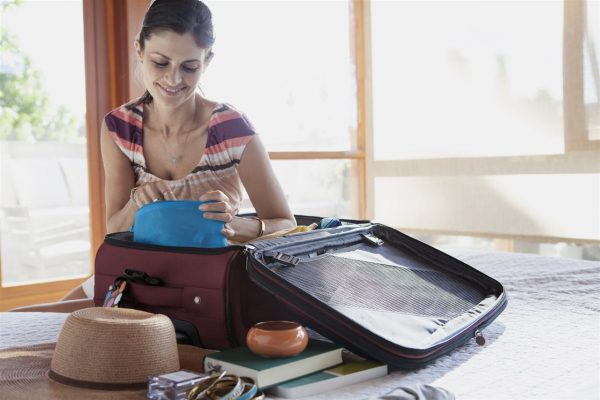 U.S. residents logged 1.7 billion trips for leisure purposes in 2016, according to the U.S. Travel Association, and this number will likely grow in 2018. Whether you’re traveling for leisure or business, you shouldn’t lose sight of nutrition. It’s common to think, “Hey, I’m on vacation, so I can throw my healthy diet out the window.” Wrong. Traveling can throw the body for a loop with time zone changes, shifts in sleep schedules and the availability of fast, convenient and highly processed foods.
U.S. residents logged 1.7 billion trips for leisure purposes in 2016, according to the U.S. Travel Association, and this number will likely grow in 2018. Whether you’re traveling for leisure or business, you shouldn’t lose sight of nutrition. It’s common to think, “Hey, I’m on vacation, so I can throw my healthy diet out the window.” Wrong. Traveling can throw the body for a loop with time zone changes, shifts in sleep schedules and the availability of fast, convenient and highly processed foods.
Use these five easy steps to make sure you stay healthy on the go this year.
1. Pack healthy snacks.
Dining while on the go usually translates to getting a quick hunger fix that involves processed, high-fat foods. Make a conscious effort to pack healthy snacks. Apples and nut butter, pretzels and hummus and dried, no-sugar-added fruit are a few healthy options.
2. Lighten your luggage.
It’s all too common for travelers to try to max out the weight of their checked luggage, which often weighs in at 50 pounds. Carting around heavy luggage and bags can take a toll on the body.
One easy way to lighten your load is to condense cumbersome toiletries. For instance, look at the prescription medications and dietary supplements you’re packing. A 2018 Wakefield Research study, conducted for Vitamin Packs, found that more than half — 51 percent — of respondents tote along five or more different types of pills when they’re traveling. And with age comes ailments. Baby boomers are the pill pack mules, with 64 percent taking five or more types of pills along for the ride when they travel, compared to only 35 percent of millennials who bring the same amount.
The good news — you can leave dietary supplement bottles and days-of-the-week pillboxes at home. Look for personalized vitamin subscription services, like Vitamin Packs (www.vitaminpacks.com), that combine customized dietary supplements into individual daily packs that can easily tuck into your carry-on luggage.
3. Don’t forget essential nutrients.
The introduction of personalized nutrition has made it much easier (and lighter) to bring your vitamins and supplements with you when you travel. It may not always be convenient to grab a bright orange pepper or a bowl of fresh spinach while on the go. Therefore, your body may be craving folic acid, vitamin C, vitamin A, lutein, and just about every other phytonutrient.
“We shouldn’t sacrifice our nutrition simply because we’re away from our kitchen,” commented Elizabeth Somer, registered dietitian, author of “Eat Your Way to Happiness” and Vitamin Packs medical advisory board member. “I always pack nutritionally rich go-to snacks when I’m away from home and pack a multivitamin that delivers the essential nutrients my body needs to perform at its best.”
4. Keep your blood flowing.
If you’re planning a U.S. cross-country flight this year, direct flights can leave you sitting for five hours or more. These long periods of sedentary travel can lead to blood clots. Before you go, check with your doctor about adding an omega-3 supplement to your diet to maintain healthy blood flow.
5. Hydrate. Hydrate. Hydrate.
Water should be your No. 1 travel companion. Pack a reusable water bottle, so you can quickly fill up at water fountains located in many airports, train stations and bus stops.
As you take to the air, road or track this year, make nutrition a top priority. Your body will thank you and it will give you the energy you need to enjoy your time wherever your travels take you.

